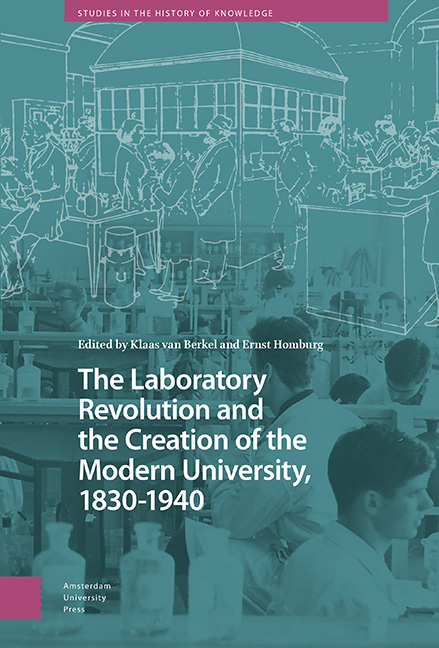13 - Images of the Laboratory in the Popular Press
Published online by Cambridge University Press: 29 November 2023
Summary
Abstract
During the Laboratory Revolution of the late nineteenth century, the popular press was instrumental in disseminating an increasing number of visual representations of the laboratory, which contributed to the rising public authority of laboratory research. This chapter offers a typology of these images, based on a sample of pictures taken from the pages of the French journal La Nature between 1873 and 1914. It argues that there was a shift in epistemological meaning attributed to these representations, in which the laboratory images tended to emphasize the dehumanized, impersonal nature of strict scientific procedures, in opposition to but also complementary with the portrayal of the individual genius of scientists.
Keywords: laboratory, German Model, popular press, visual culture, Marie Curie
Introduction
Science popularizers have always appreciated the value of images in conveying messages about complicated and difficult scientific issues. From the early modern technical treatises to the eighteenth-century Encyclopédie of Diderot and D’Alembert, illustrations have been used to explain theoretical arguments or practical procedures to non-scientific audiences. But different from scientific images, which are designed and produced by and for scientists, popular images do not necessarily reflect the current status of science. On the contrary, according to Berd Hüppauf and Peter Weingart, they are ‘reflections of popular views and prejudices’ and activate ‘memories of previous, similar images … often compressed to a stereotype not dissimilar to an archetypical image’. These popular images form a ‘collective imaginary space of science’, ‘the product of a complex combination of pre-modern mythology and recent science images’, ‘reflecting the audience’s beliefs, expectations, and anxieties’. Although popular images often support the narrative of an accompanying text, they also carry an independent metaphorical message, that ‘connote[s] or symbolize[s] meanings and values over and above what they literally represent’. To unearth these messages, an analysis of forms and formats is needed, looking beyond the pictorial content of the image. In this chapter we focus on the representation of the laboratory during the Laboratory Revolution. The aim is to formulate a typology of images, which may bear on the understanding of the Laboratory Revolution, and its impact on the perception of authority and the nature of science.
- Type
- Chapter
- Information
- Publisher: Amsterdam University PressPrint publication year: 2023



